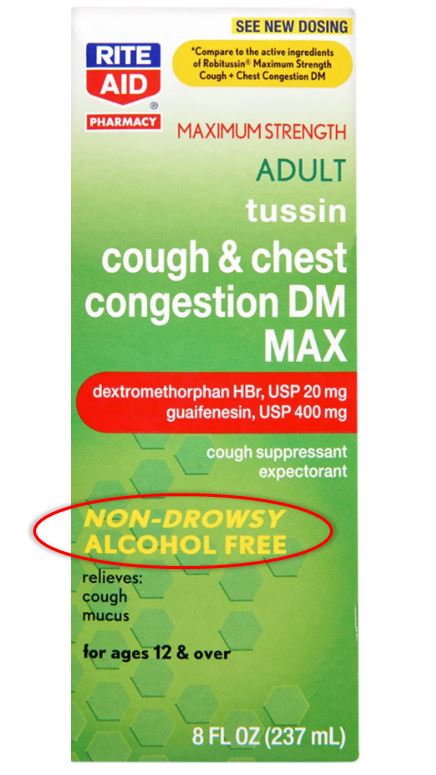February
2022
Dovel & Luner Sues Rite Aid Over Deceptive “Non-Drowsy” Advertising
February 17, 2022 — SANTA MONICA – The Dovel & Luner law firm on Wednesday filed a federal class action lawsuit against Rite Aid Corporation on behalf of a California consumer who purchased “Non-Drowsy” Rite Aid medication. Lemus v. Rite Aid Corporation, Case 8:22-cv-00253 (C.D. Cal.). The lawsuit alleges that Rite Aid misled millions of consumers by deceptively labeling its over-the-counter cough medicine products as “Non-Drowsy,” even though the products actually cause drowsiness.
The Complaint, filed in the United States District Court for the Central District of California, alleges that Rite Aid violated the consumer protection laws of many states, as well as California’s Unfair Competition Law and False Advertising Law.
Rite Aid prominently labels many of its over-the-counter cough medicine products as “Non-Drowsy.” Here is an example of Rite Aid’s packaging for its Cough & Chest Congestion DM Max medication, which advertises that the product is “Non-Drowsy”:
According to the lawsuit, a reasonable consumer would understand Rite Aid’s packaging to mean that these products do not cause drowsiness. In reality, however, the lawsuit claims these products contain Dextromethorphan Hydrobromide (DXM), an ingredient that causes drowsiness. In fact, according to the lawsuit, the FDA’s database shows that “sedation … is one of the most frequently-cited side effects of DXM-containing products,” and the Federal Aviation Administration prohibits pilots from flying after taking medication containing DXM.
Whether or not an over-the-counter medication causes drowsiness, the lawsuit alleges, is important to consumers. By claiming that its products are “Non-Drowsy,” Rite Aid led consumers to believe that its products “can be safely and satisfactorily consumed during waking hours, at work, and while driving and operating machinery,” the lawsuit claims.
According to the lawsuit, Rite Aid’s “false statements increased the demand for Non-Drowsy Rite Aid Products and allowed [Rite Aid] to charge a price premium.” The lawsuit seeks to enjoin Rite Aid from continuing to engage in deceptive advertising and to require that it compensate harmed consumers.
“Consumers should be able to rely on the labels placed on over-the-counter medicines,” said Simon Franzini of Dovel & Luner. “Labelling a medicine “non-drowsy” if it causes drowsiness is misleading—and dangerous.”
CONTACT:
Simon Franzini
Dovel & Luner
SOURCE Dovel & Luner, LLP
Related Link:
What We Do | Class Actions
Related Publication(s):